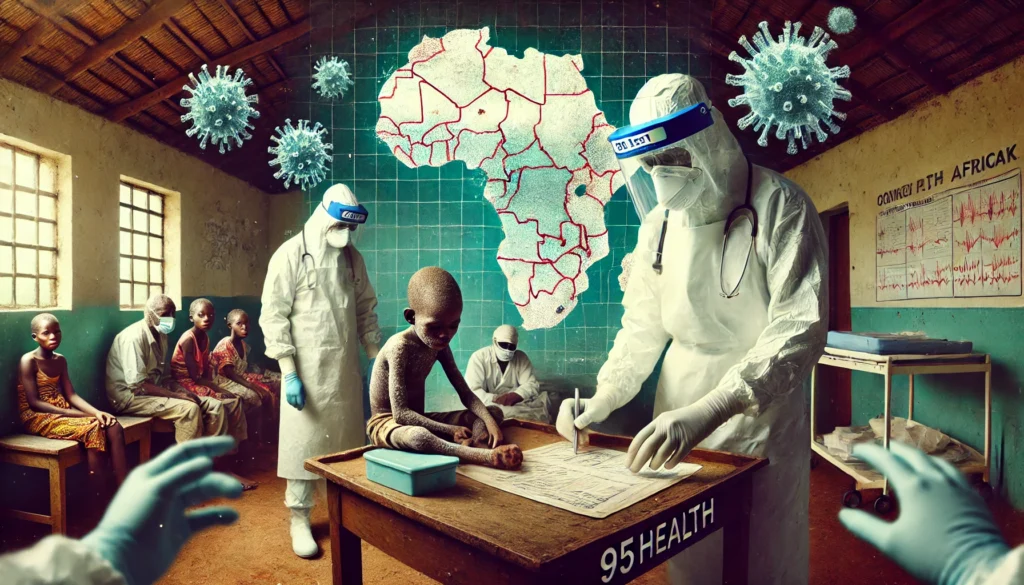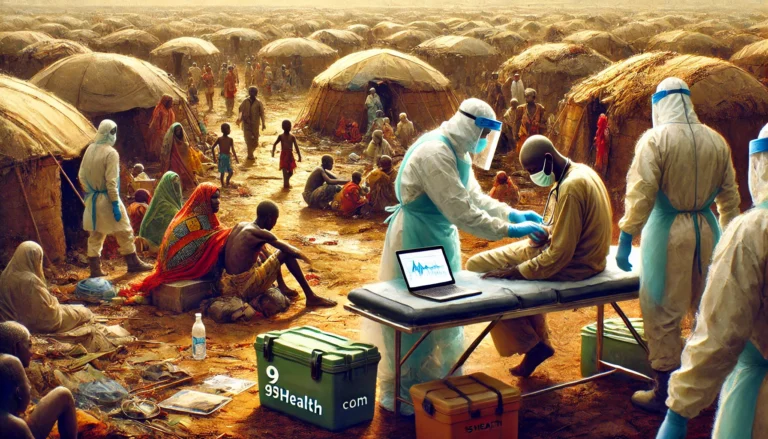Rising Concerns Over Monkeypox Outbreak in East Africa
The recent monkeypox outbreak in East Africa has raised significant concerns among health experts and the general public. The new strain, known as clade Ib, is considered one of the most dangerous variants of the virus discovered so far. This strain, first identified in the Democratic Republic of the Congo, has spread to neighboring countries, including Rwanda, Burundi, and Uganda.
Health Implications and Spread
The clade Ib strain of monkeypox spreads through close contact, particularly skin-to-skin contact, and can cause severe symptoms such as flu-like illness, painful rashes, and pus-filled blisters. Unlike previous strains, this variant has shown a broader transmission capability, spreading not only through sexual contact but also within households and even person-to-person outside of close familial settings.

Potential Global Impact
Experts fear that this strain could lead to a global outbreak if not contained promptly. The virus’s ability to spread beyond traditional transmission routes poses a significant challenge to health authorities. Researchers have emphasized the urgent need for increased surveillance and the implementation of effective containment measures to prevent further spread.
Response and Preventive Measures
To combat the outbreak, health officials are focusing on vaccination and public awareness campaigns. The World Health Organization (WHO) and local health departments are working to distribute smallpox vaccines, which are believed to offer some protection against monkeypox. Additionally, there is a push to vaccinate high-risk groups, such as healthcare workers and sex workers, to curb the virus’s transmission.
Call to Action
The current situation underscores the importance of global cooperation in addressing infectious disease outbreaks. Enhanced surveillance, rapid response teams, and public health interventions are crucial in preventing the spread of monkeypox. The international community must remain vigilant and support affected regions in their efforts to control this emerging health threat.








Last year as I travelled round East Africa, I saw first hand the difficulties local communities face in controlling outbreaks. The rising cases add to new concerns as World Health Organization (WHO) data suggest over 20% increase in infections in the region. I have undergone training in infectious disease management, have global health experience, and understand the imperative of identification of the disorder early enough and vaccination of those in the high risk group. They also show that nations with significant public health responses can significantly reduce the spread. How is a community, in particular, handling global health concerns such as this?
A similar outbreak in my area was unsettling. At the time, a clear form of communication on preventive steps was weeks and weeks away. WHO is reporting that monkeypox cases in East Africa have doubled since last month. The spread is mostly among regions with little access to health care, it’s concerning. Hence, awareness as well as timely responses are important. My hope is that we will be able to use better interventions this time. Have you had anything like this happen in your community too?